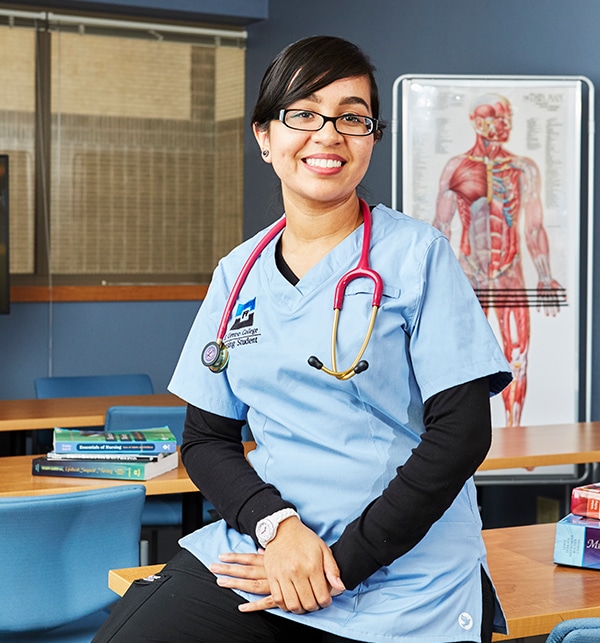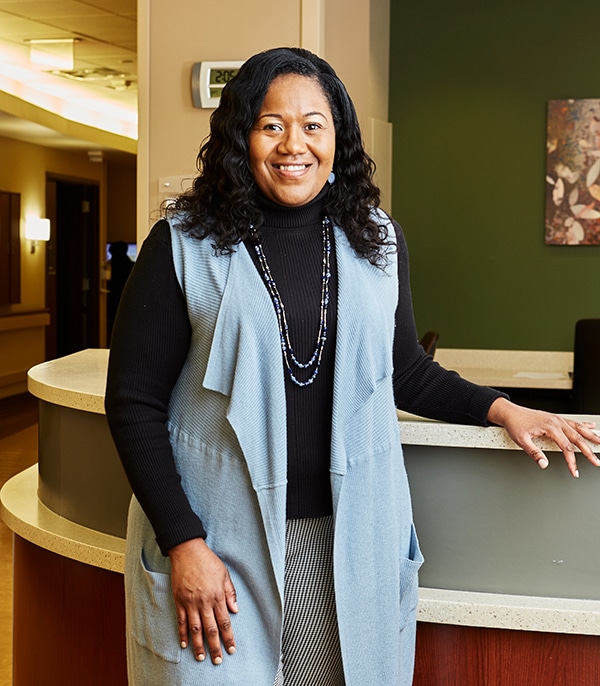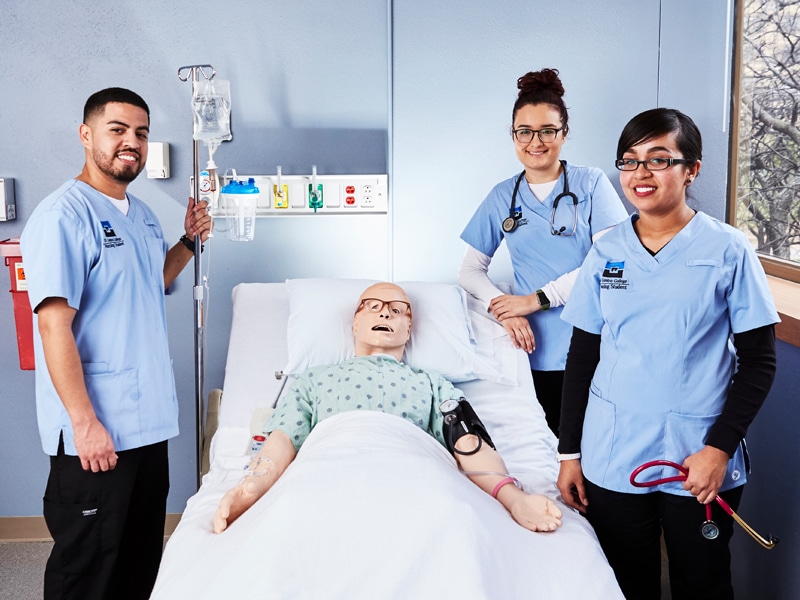Nurses are the hub of healthcare. They provide and coordinate care, act as patient advocates, and connect patients with support services. But across the country — including here in Texas — there is a growing shortage of qualified nurses.
According to the Texas Center for Nursing Workforce Studies, there will be a deficit of 59,970 full-time registered nurses by 2030. Compounding the problem is a lack of diversity in the nursing profession. The American Association of Colleges of Nursing estimates that only 18 percent of nurses are minorities. A diverse nursing workforce that mirrors the patient population is essential to providing quality, culturally competent care.
Methodist Health System is collaborating with organizations, educators, and donors to open doors for nursing careers and support nursing education. Meet two of the nurses Methodist has inspired and supported in pursuing their nursing careers.
Michelle Fraile: Pursuing a passion for helping others

Michelle Fraile has wanted to be a nurse since she was a child—and her introduction to the profession was at Methodist Dallas. As a first-generation American and the most fluent English-speaker in her family, she accompanied her grandparents there for medical appointments, acting as an interpreter.
“I was inspired by how much the nurses cared for my grandparents,” Michelle says. “I also saw the need for more bilingual nurses, who speak the language and understand the culture of their patients.”
She signed up as a Junior Volunteer in the Methodist Dallas College and Career Pathways program and later enrolled in the Future Nurse Intensive Program. Now, she is in her first year of the El Centro College Associate Degree Nursing Program at Methodist Health System (ECC MHS).
“As a first generation Latina student, it is hard to find your way, especially financially,” Michelle says. “If it was not for this program, I would not have had the means to pursue my dream of becoming a nurse. I am very grateful.”
Melissa Mitchell: Growing professionally while raising a family

Melissa Mitchell, MSN, RN, CMSRN, LSSYB, is the director of nursing education and professional development at Methodist Mansfield Medical Center and is currently pursuing her Doctor of Nurse Practice degree with support from Methodist Health System.
When she began her career with Methodist Health System in 2006, she had been a licensed vocational nurse (LVN) for 10 years. “At that time, the healthcare industry was changing, and fewer hospitals were hiring LVNs,” Melissa says. “When the door opened for me to work at Methodist, I was so thankful.”
While at Methodist, Melissa heard about the ECC MHS program, which covers tuition for eligible Methodist employees who want to advance their nursing education. After completing the program, she went on to earn her Bachelor of Science in Nursing and Master of Science in Nursing.
“As a single mom with three children, to have the opportunity to earn a college degree, with a support system of instructors and mentors is amazing,” Melissa says. “Methodist’s nursing education programs provide a great start for those who are financially underprivileged, and I am very appreciative.”
Making nursing better, together
Methodist’s nursing education programs would not be possible without the support of our donors. Among them are the Texas Women’s Foundation and the William F. and Noreen L. Nicol Fund, both of which have been instrumental in funding the ECC MHS program. The Brenda Louise Jackson Donor Advised Fund at Texas Women’s Foundation has also supported Methodist’s nursing education programs.
Winnie Neal, MSN, RN-BC, director of nursing education and professional development at Methodist Dallas, believes that when donors invest in nursing education, their support will be exponentially multiplied.
“Methodist’s nursing education programs impact individual lives, families, and communities — and they will also impact the way you’re cared for, when you have health needs.”
Nursing education programs at Methodist Health System
Methodist’s nursing education programs provide opportunities for high school and college students, as well as health system employees, to explore careers in nursing and earn nursing degrees at no cost to participants.
- Methodist Dallas College and Career Pathways Program. Dallas County high school students volunteer and have educational opportunities in a hospital environment.
- Future Nurse Intensive Program. High school and college students spend two weeks shadowing nurses in various specialties. Students receive personal mentoring and assistance planning a nursing career path.
- El Centro College Associate Degree Nursing Program at Methodist Health System. System employees, their immediate family members, and volunteers are eligible to apply for this two-year nursing degree program on the Methodist Dallas campus
Join us in supporting this worthwhile and important profession.
Support Methodist Health System’s nursing programs.

